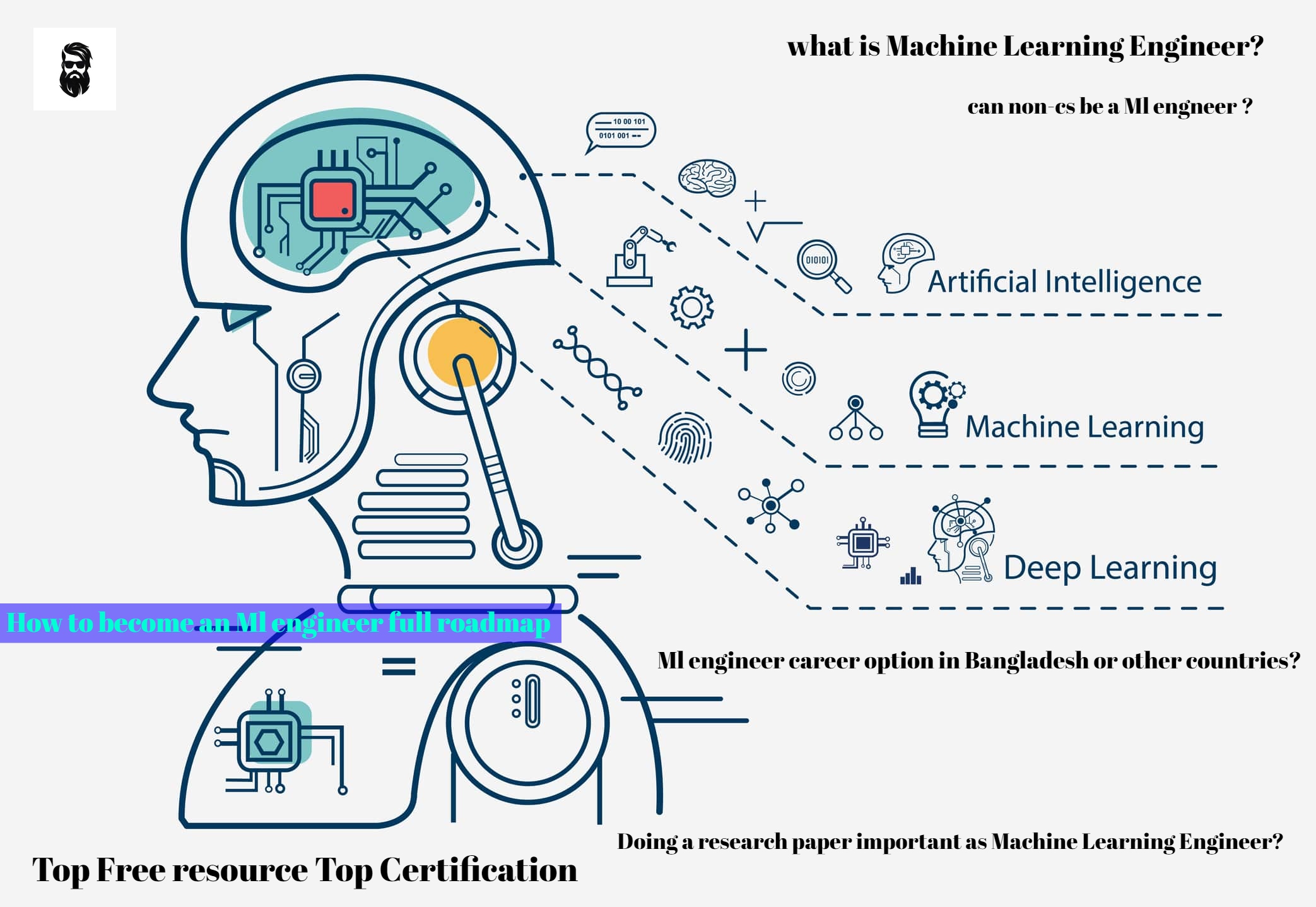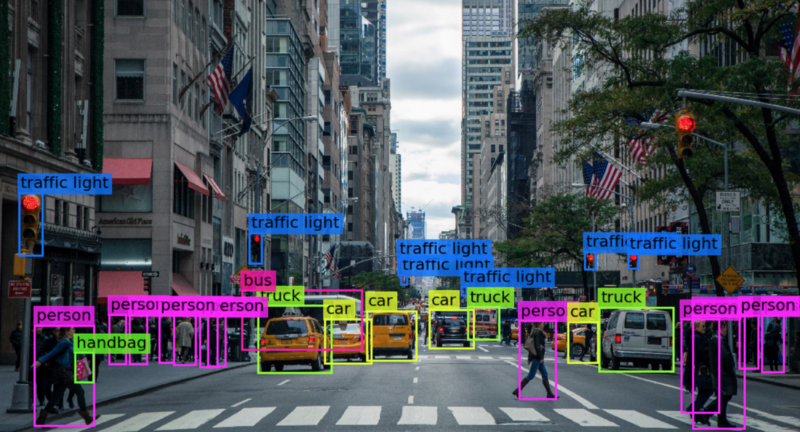Machine Learning Engineer full Guide
what is Machine Learning Engineer?
A Machine Learning (ML) Engineer is a professional who designs, develops, and implements machine learning algorithms and models that enable computer systems to learn from data and make predictions or decisions.
The role of a Machine Learning Engineer involves working with large and complex datasets to identify patterns and insights that can be used to train ML models. They also select and optimize algorithms, tune hyperparameters, and apply various techniques to improve the performance of the models. Additionally, they work with data scientists and software engineers to integrate ML models into applications and systems.
Machine Learning Engineers require a deep understanding of mathematics, statistics, and computer science, as well as expertise in programming languages such as Python and frameworks such as TensorFlow or PyTorch. They should be able to work collaboratively and have good communication skills, as they need to work with cross-functional teams to deliver ML solutions that meet business needs.
Machine Learning Engineers are in high demand across a wide range of industries, including finance, healthcare, e-commerce, and entertainment. They play a critical role in enabling businesses to leverage the power of data and AI to gain a competitive advantage.
is Machine Learning Engineer: is a good career option?
Yes, being a Machine Learning Engineer can be a great career option in today's job market. The demand for skilled professionals in this field is rapidly growing, as more and more businesses are seeking to leverage the power of machine learning to gain insights from data and develop new AI-based products and services.
Machine Learning Engineers typically have competitive salaries, with potential for significant growth over time, and the opportunity to work on challenging and rewarding projects that can have a real impact on society. Additionally, the skills and experience gained as a Machine Learning Engineer are highly transferable and can be applied to a wide range of industries and applications.
However, it's worth noting that becoming a successful Machine Learning Engineer requires a strong foundation in computer science, mathematics, statistics, and machine learning concepts, as well as a willingness to continually learn and keep up with the latest advances in the field. Therefore, it's important to invest time and effort in developing these skills and gaining practical experience through projects and internships in order to be competitive in the job market.
can non-cs be a Ml engneer ?
Yes, individuals from non-computer science backgrounds can become Machine Learning Engineers with the right education, training, and experience. While a computer science degree or a related field can provide a solid foundation in programming, data structures, and algorithms, individuals from other backgrounds can acquire these skills through other means, such as online courses, bootcamps, or self-study. Moreover, Machine Learning Engineers also require a strong understanding of mathematics and statistics, which can be acquired through courses in these fields or through experience in related roles. Ultimately, what matters most is a candidate's skills and experience in machine learning and related fields. Many Machine Learning Engineers come from diverse backgrounds, including physics, mathematics, and engineering, and have developed the necessary skills through practical experience and self-learning. However, it is important to note that becoming a Machine Learning Engineer requires a significant investment in time and effort, regardless of one's educational background. Individuals will need to develop a deep understanding of machine learning algorithms, data preparation, and model deployment, as well as gain practical experience working on real-world problems.
How many things do we have to learn as Machine Learning Engineer:
As a Machine Learning Engineer, there are several key skills and knowledge areas that you should aim to master. Here are some of the most important things you need to learn:
- Mathematics and Statistics: You need a solid understanding of calculus, linear algebra, probability theory, and statistics, as these subjects form the foundation of machine learning algorithms.
- Programming: You should be proficient in programming languages such as Python, as well as familiar with common libraries and frameworks used in machine learning, such as Scikit-Learn, TensorFlow, PyTorch, and Keras.
- Machine Learning Algorithms: You need to understand a wide range of machine learning algorithms and how they work, including supervised and unsupervised learning, deep learning, reinforcement learning, and natural language processing.
- Data Preparation and Cleaning: You need to know how to prepare, preprocess, and clean large datasets to make them suitable for machine learning.
- Model Selection and Tuning: You need to understand how to select the right model for a given problem and how to tune its parameters for optimal performance.
- Software Engineering: You should have a solid understanding of software engineering principles and best practices, including version control, testing, and deployment.
- Communication and Collaboration: You should have strong communication and collaboration skills, as you will need to work effectively with data scientists, software engineers, and other stakeholders to deliver successful machine learning projects.
- Becoming a Machine Learning Engineer requires significant time and effort, but the payoff can be well worth it in terms of career opportunities and job satisfaction. It's important to continue learning and keeping up with the latest advances in the field, as machine learning is a rapidly evolving and expanding area of study.
Doing a research paper important as Machine Learning Engineer?
Publishing a research paper is not a requirement to become a Machine Learning Engineer, but it can be a valuable asset to your career.
A research paper can demonstrate your knowledge and expertise in a particular area of machine learning, as well as your ability to design and execute experiments, analyze data, and draw conclusions. It can also help you gain recognition within the machine-learning community, which can lead to new opportunities for collaboration and career advancement.
Publishing a research paper can also be an important part of pursuing advanced degrees in machine learning, such as a Ph.D. or a Master's degree with a research component. In these programs, you will typically be required to conduct original research and produce a research paper as part of your coursework.
That being said, not all Machine Learning Engineers need to have published research papers, and many successful professionals in the field have built their careers through practical experience and on-the-job learning. Ultimately, the most important factor in becoming a successful Machine Learning Engineer is your ability to apply your knowledge and skills to real-world problems and deliver results that meet business needs.
how to become an Ml engineer full roadmap
Becoming a Machine Learning Engineer requires a solid foundation in computer science, mathematics, and statistics, as well as expertise in machine learning algorithms, data preparation, and model deployment. Here is a roadmap to becoming a Machine Learning Engineer:
- Learn the Fundamentals: Start with a strong foundation in computer science, mathematics, and statistics. This includes programming languages like Python and R, data structures, algorithms, linear algebra, and calculus.
- Learn Data Science: Build on the fundamentals by learning data science concepts like data cleaning, data visualization, and exploratory data analysis. This is important for preparing data for machine learning models.
- Learn Machine Learning Algorithms: Gain expertise in a range of machine learning algorithms, including supervised and unsupervised learning, deep learning, and reinforcement learning.
- Practice on Real-World Problems: Work on real-world machine learning problems to gain practical experience. Participate in Kaggle competitions or work on open-source projects to build your portfolio.
- Learn Model Deployment: Learn how to deploy machine learning models in production environments. This includes understanding cloud services like AWS, GCP, and Azure, and containerization technologies like Docker.
- Get Certified: Consider getting certified in a specific machine learning technology or platform, like TensorFlow or AWS. This can demonstrate your expertise to potential employers.
- Build a Strong Network: Attend machine learning conferences, meetups, and events to build your network and learn from experts in the field.
- Continue Learning: Keep up with the latest trends and developments in machine learning by reading research papers, attending workshops and online courses, and participating in online communities.
Becoming a Machine Learning Engineer takes time and effort, but the demand for skilled professionals in this field is high. By following this roadmap, you can build the skills and experience needed to become a successful Machine Learning Engineer.
Top marching learning certification
These are just a few of the many machine learning certifications available. The best certification for you will depend on your career goals, current skills and experience, and the specific technologies and platforms you are interested in working with.
- Microsoft Certified: Azure AI Engineer Associate: This certification from Microsoft focuses on the development and deployment of machine learning models on Azure, with a focus on natural language processing, computer vision, and knowledge mining.
- IBM Certified Data Scientist: This certification from IBM covers a range of data science and machine learning topics, including data mining, machine learning algorithms, and data visualization.
- AWS Certified Machine Learning - Specialty: This certification from Amazon Web Services covers the design and implementation of machine learning models on the AWS platform, with a focus on data preparation, feature engineering, and model optimization.
- SAS Certified Professional: Machine Learning Using SAS Viya 3.4: This certification from SAS focuses on using SAS Viya to build and deploy machine learning models, with a focus on data preparation, model selection, and performance evaluation.
- Coursera Machine Learning Certification: This certification from Coursera is a comprehensive program covering a wide range of machine learning topics, including supervised and unsupervised learning, deep learning, and neural networks.
- Stanford Machine Learning Certification: This certification from Stanford University covers the fundamentals of machine learning, including linear regression, logistic regression, and support vector machines.
These are just a few of the many machine learning certifications available. The best certification for you will depend on your career goals, current skills and experience, and the specific technologies and platforms you are interested in working with.
A free resource for learning Machine Learning Engineer
There are many free resources available for learning Machine Learning Engineer. Here are some popular ones:
- Coursera: Offers a wide range of free online courses on machine learning, data science, and related topics. Some courses are self-paced, while others follow a more traditional schedule with set start and end dates. You can audit courses for free, or pay a fee for a certificate.
- edX: Similar to Coursera, edX offers a wide range of online courses in machine learning and data science, many of which are free to audit. Courses are offered by top universities and industry leaders.
- Stanford Online: Stanford University offers several free online courses on machine learning, including the popular CS229 course taught by Andrew Ng.
- Kaggle: Kaggle is a platform that hosts data science competitions, as well as provides datasets and tutorials for machine learning. The community is active and supportive, making it a great resource for learning and getting feedback on your work.
- Fast.ai: Offers a free deep learning course that teaches the latest techniques and tools in the field. The course is designed to be accessible to those with limited programming experience and includes practical coding assignments.
- Google's Machine Learning Crash Course: A free online course that covers machine learning concepts and techniques in a hands-on way. The course is designed for beginners and includes interactive coding exercises.
- YouTube: There are many excellent channels on YouTube that offer tutorials and lectures on machine learning, such as Two Minute Papers, Sentdex, and Siraj Raval.
These resources can provide you with a solid foundation in machine learning concepts and techniques. However, it's important to also practice what you learn through projects and real-world applications to build your skills and gain practical experience.
do we have an Ml engineer career option in Bangladesh or other countries?
Yes, there are Machine Learning Engineer career options in Bangladesh and other countries. As the demand for Machine Learning and Artificial Intelligence (AI) technologies continues to grow, companies in various industries are increasingly looking to hire skilled professionals in these fields. In Bangladesh, there are several companies that are actively hiring Machine Learning Engineers, such as Grameenphone, bKash, and Pathao. Other countries in the region, such as India and Pakistan, also have a growing demand for Machine Learning Engineers. Furthermore, many companies are open to hiring remote employees, which means that individuals with Machine Learning skills can work for companies in other countries, even if they are based in Bangladesh or other countries. Overall, there are opportunities for Machine Learning Engineers in Bangladesh and other countries, as long as individuals have the necessary skills and experience. It is important to stay up-to-date with the latest technologies and trends in the field to remain competitive in the job market.









